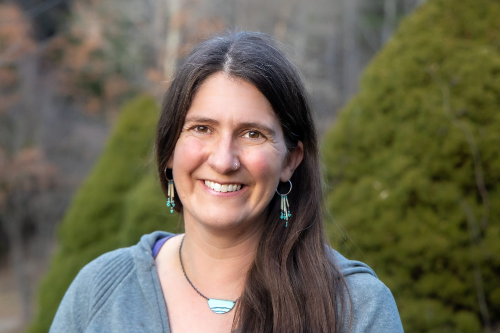On the tale end of a story, we always have perspective that we would have missed if we were looking at the front-side. Likewise, we’re usually looking at the front-side of our own story, and can’t make order out of the seeming madness.
In these past few days, I have been reading through the beginning of Luke and imagining the front side of the story of Zacharias and Elizabeth, who we know as John the Baptist’s parents. We are certainly privy to information about their lives that they didn’t have until they had spent the better part of their life struggling through difficult circumstances.
Enter with me, if you will: “In the days of Herod, king of Judea, there was a priest named Zacharias, of the division of Abijah, and he had a wife from the daughters of Aaron, and her name was Elizabeth. They were both righteous in the sight of God, walking blamelessly in all the commandments and requirements of the Lord, But they had no child, because Elizabeth was barren, and they were both advanced in years.” (Luke 1:6-7).
In order to understand the gravity of this situation, we have to remove ourselves a little from our own culture, and enter into their’s. Honestly, in modern times, we actually have “doctor’s offices” established in order to destroy any life growing in our wombs. In ancient Jewish times, it was an indescribably loss, not to have children. There would be no one to carry on the family name or trade. No one to help carry the weight of the labor work that was required for survival. In modern times, we set up storehouses to gather our elders and make sure that some else is feeding them, changing their bedclothes, and listening to their stories, since we tend to be so preoccupied with our own busy schedules that we can’t be bothered with someone else’s needs. In Zacharias and Elizabeth’s day, offspring were the only means of elderly care. To not have children would have brought about a great sense of anxiety in these two beating, aging hearts, who had no security as to how they would be cared for, when they could no longer care for themselves. In modern times, people are somewhat shamed if they have an entourage of children scurrying behind them, whereas in these times, to not have a single child was an almost unbearable public shame.
Zacharias and Elizabeth lived under this “curse”, yet, “they were both righteous in the sight of God, walking blamelessly in all the commands and requirements of the Lord.” I cannot help but get lost a little on this one verse. They followed after God… despite the fact that He had withheld this common, yet almost necessary blessing from them. They endured how-ever-many-decades of public scorn, of feeling unloved by the Most High, of feeling “lesser” to their Heavenly Father, yet walked resolutely in His ways. Perhaps this is why He chose them to carry this weight of glory in the womb, in only a few short verses.
Another detail that is easy to miss in this story is this: “Now it happened that while he was performing his priestly service before God in the appointed order of his division, according to the custom of the priestly office, he was chosen by lot to enter the temple of the Lord and burn incense, And the whole multitude of the people were in prayer outside at the hour of the incense offering” (Luke 9-10).
A little more background information may be necessary right now. What we have, in modern days, is a fuller view of God’s grace, perhaps than they had. But what we lack is a fuller view of His holiness. This act of temple service, this sacred space that Zacharias was required entered into, was at the pinnacle of their understanding of the holiness of God. If a man or woman would have entered this room, this Holy of Holies, in an unworthy manner, he would have been struck dead on the spot. This is where the very Presence of the Most High dwelt. The barrier between this sacred space and the rest of the temple was guarded by an immense veil that was, if I remember correctly, about 4 inches thick and impenetrable. This is the veil that God tore in two, from top to bottom, like no man could ever have done, at the moment of Christ’s death, symbolizing that His Presence would no longer be kept separate from His people. Grace.
And Zacharias had been chosen to enter in, to offer incense. What a sacred privilege and what a holy fear. Here is Zacharias, whose wakes up every morning to the sound of an empty home, while the orchestra of his neighbors’ children fills the air outside with laughter, and his heart with anguish. Here is Zacharias, who has almost assuredly long-lived under the belief that, though God had given him this priesthood, had never loved him enough to give him a child, and to remove his public-scorn and fear of being abandoned in his aged years. Here is Zacharias entering his aged years without the help of a companion, other than his elderly wife. He has spent the years reserved for raising children, with the ever present reminder that God had denied him one.
So often, we humans, make assessments as to whether or not we are loved, based on circumstance. We assume that God loves the endowed Christian more than the one struggling on the streets of the city, wrestling addiction and poverty. We assume that the withholding of a blessing communicates the withholding of love. If you are willing to pry open your heart a little, you will likely find this type of thinking resides there, because it seems to be the thought of every man, conscious or unconscious. We judge God by our circumstances.
It is no wonder that the entire multitude of the people stood outside the veil praying. They likely all believed that Zacharias had less favor in the eyes of God and were likely petrified that he was entering into his own tomb. No wonder Zacharias felt great dread when the angel Gabriel arrived on the scene, and disbelief when he made a promise to him that had been his longest desire, and yet far too late for its fulfillment. No wonder he couldn’t believe his own ears. No wonder.
Yet now we know Zacharias and Elizabeth as some of the most blessed parents in all of history… to raise the Christ’s forerunner, John the Baptist, this incredible prophet who would lead many sons home to the Father, who would be filled by the Holy Spirit before he even exited the womb.
So, here’s what I learn from Zacharias and Elizabeth. God delights in faithful, diligent worship, even in the deserts of life, even when the road is hard and long, and that He never takes His tender eyes off of His children. We cannot determine God’s love for us by any of our circumstances, but only by the Cross, where He made His own circumstances to be the most excruciating of all, in order to prove His love to you and me, and that thief on the cross hanging at His side. There is no hierarchy in the Kingdom of heaven. And it is a lie to believe that His earthly blessings exemplify His heavenly favor. James, the Lord’s little brother, actually calls humble circumstances (like suffering, poverty and want) a high position and tells the rich that he is to glory in his humiliation (James 1:9-10), and if you read the Beatitudes, it is astounding what types of things the Lord calls blessed (Matthew 5:3-12).
I am confident that the Lord would not have loved Zacharias or Elizabeth any more or less, should he have let them live out their remaining days without a child, yet He chose them to raise this brilliant prophet, and I cannot help but believe that it was because for years they walked faithfully, despite their circumstances.
Space 5/9/17


